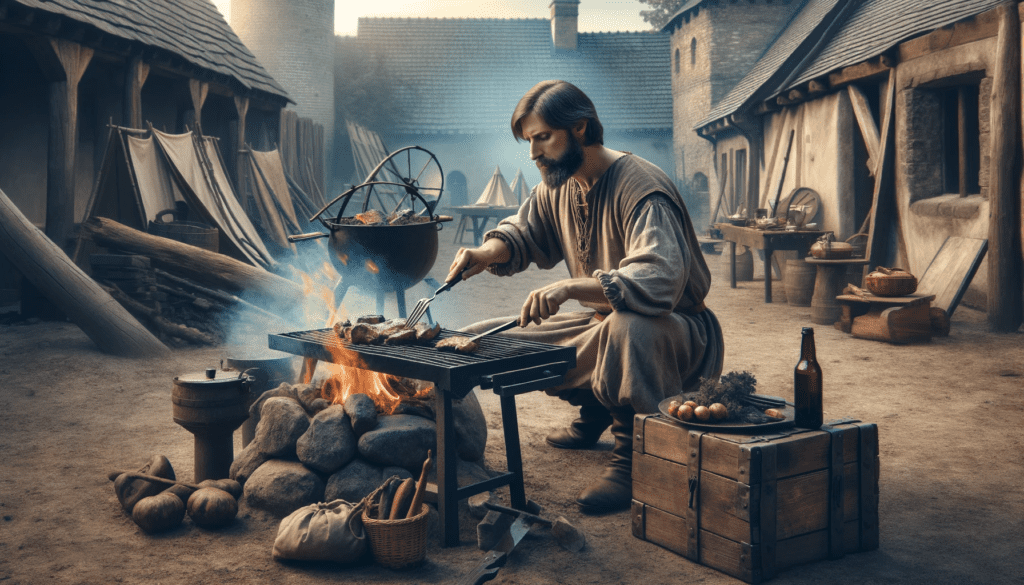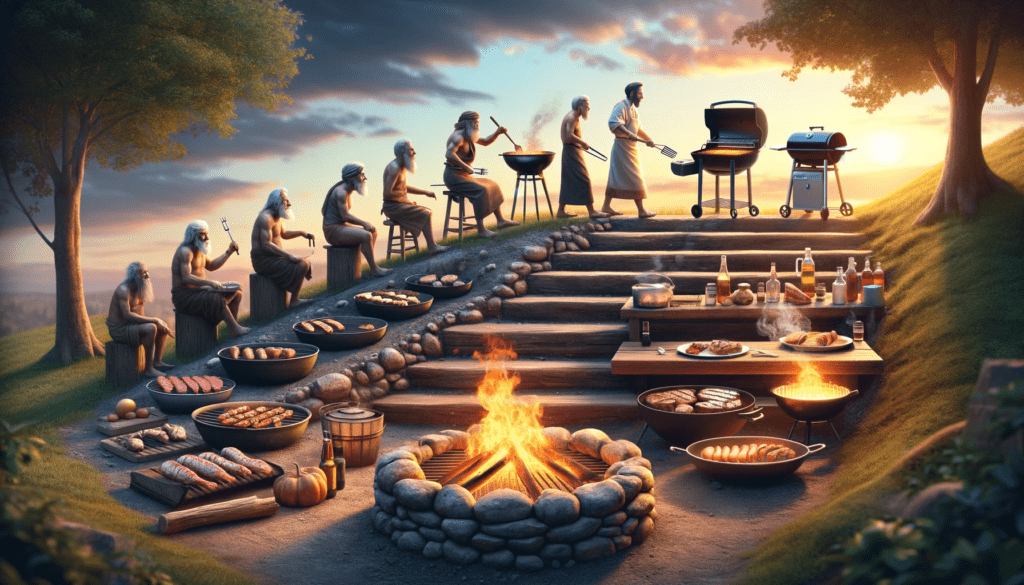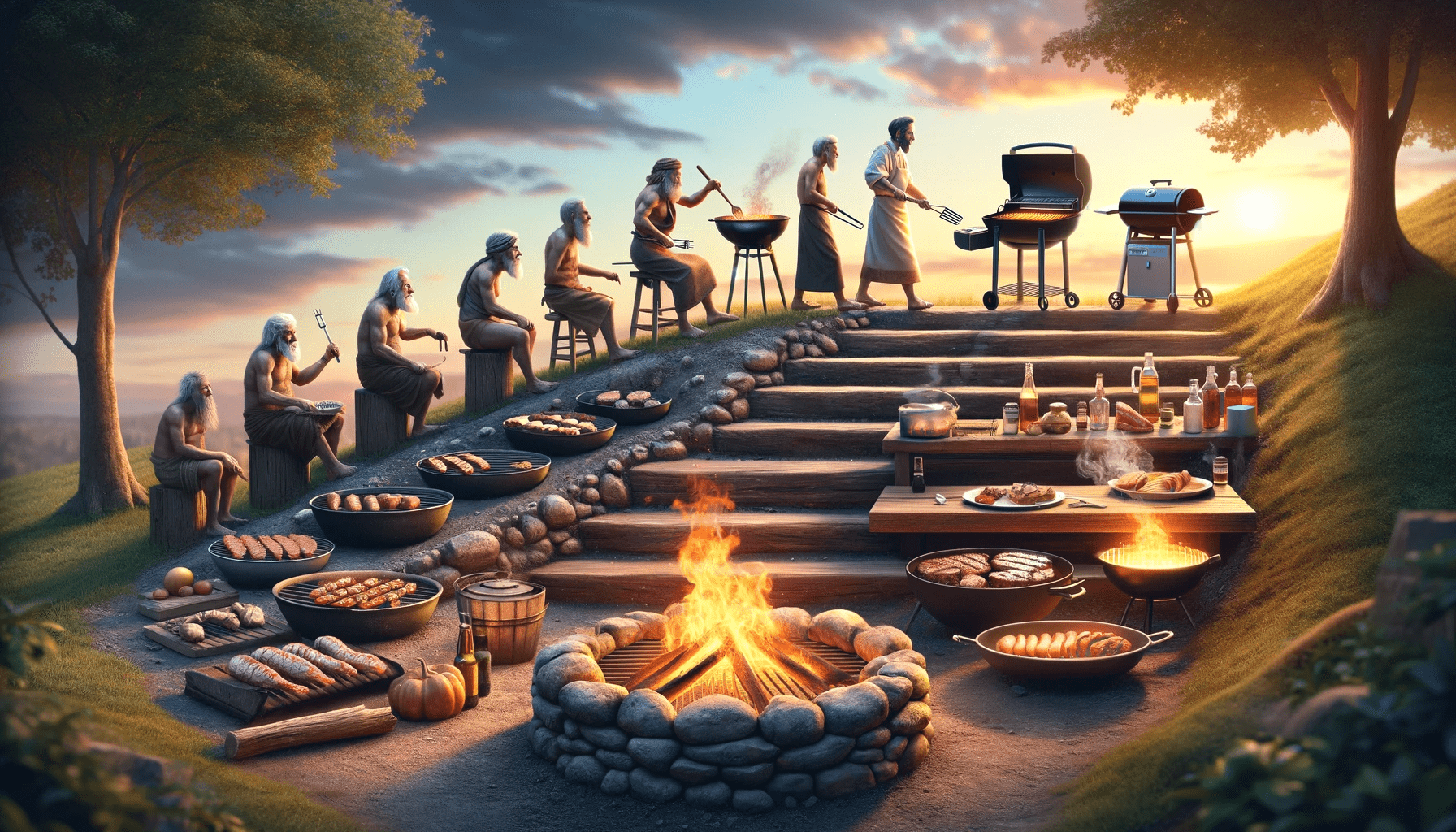The History of Barbecue A Fiery Journey Through Time
Barbecue, a cooking method as diverse as the cultures that embrace it, has a rich and fascinating history. From its humble origins to modern BBQ parties, this style of cooking remains a global sensation.
When Did They Start Doing It?
The origin of barbecue can be traced to the indigenous peoples of the Caribbean. The word “barbecue” comes from the Taíno Indian word “barbacoa,” meaning a wooden frame used for smoking or cooking meat. When European explorers arrived in America in the 15th and 16th centuries, they adopted this cooking technique and spread it worldwide.
How did it Originate?
The method of slow cooking over low heat developed in different cultures. In the southern United States, smoking meat, especially pork, became a popular method of preserving meat. This was enhanced by the availability of pigs and the temperate climate, which was ideal for slow-smoking meat.
Regional Variations
Over time, unique styles of barbecue emerged in different regions of the US. These range from the sweet and sticky sauces of Kansas City to the dry rubs of Texas and the vinegar-based marinades of North Carolina.
What Kind of Food Did They Put on the BBQ?
Originally, barbecue was used for cooking a variety of meats, mainly pork and beef. As time went on, people began to barbecue chicken, fish and even vegetables.
International Influences
Barbecue has not only developed in the United States. All over the world, countries have put their own unique spin on this cooking technique. For example, the South American “asado” is known for its beef, while in Korea “gogi-gui” (meat grill) is popular with marinades and side dishes.
The Evolution of BBQ
With the advent of the industrial revolution and more modern cooking technologies, the art of barbecue has evolved. The introduction of gas and electric grills increased the accessibility and convenience of barbecue, making it a regular feature of many cultures worldwide.
Barbecue Today
Today, barbecue is not only a cooking method, but also a social event. From family gatherings to large festivals, BBQ brings people together to enjoy great food and good times.
Conclusion
The history of barbecue is a story of cultural exchange, innovation and passion for good food. From its origins in the Caribbean to modern BBQ culture, barbecue remains a beloved tradition around the world.
Barbecue in Different Cultures
Although barbecue is strongly associated with the United States, each culture has its own unique interpretation of this cooking method. In Australia, for example, the “Aussie Barbie” is known for its laid-back atmosphere, where burgers, sausages, and steaks are often on the menu. In South Africa, “braai” is a popular tradition, where meat is grilled over an open wood fire, often accompanied by South African wines.
Famous BBQ Dishes Worldwide
Different countries also have their own famous barbecue dishes. For example, Japan is known for its “yakiniku,” grilled meat often served with a variety of sauces. Brazil is famous for its “churrasco,” where different types of meat are roasted on large skewers and sliced at the table in restaurants.
The Future of Barbecue
With the growing concern for sustainability and health, we are also seeing an evolution in barbecue culture. Vegetarian and vegan options are becoming increasingly popular on barbecue, with dishes such as grilled vegetables, veggie burgers and tofu. There is also a growing interest in more sustainable fuels and cooking methods.
Innovations in BBQ technology
Technological advances have also found their way into the world of barbecue. Modern BBQ grills now offer advanced features such as temperature control, smoke infusion and even smart technology that allows users to control their grill via an app.
Closing
Barbecue continues to evolve and adapt, preserving traditions while embracing new flavors and techniques. It is a culinary practice that brings communities together and reminds us of the joy of eating together and enjoying the outdoors.





Leave a Reply